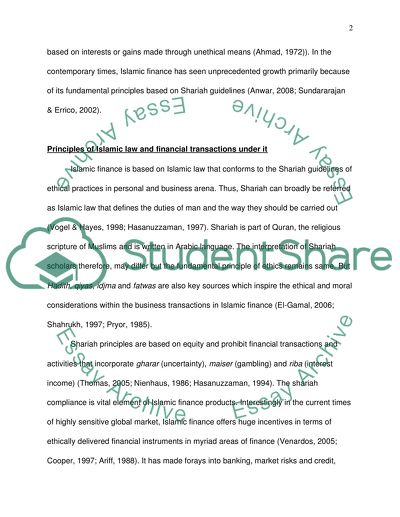Cite this document
(“Islamic Finance Law Dissertation Example | Topics and Well Written Essays - 1500 words”, n.d.)
Retrieved from https://studentshare.org/other/1423788-islamic-finance-law
Retrieved from https://studentshare.org/other/1423788-islamic-finance-law
(Islamic Finance Law Dissertation Example | Topics and Well Written Essays - 1500 Words)
https://studentshare.org/other/1423788-islamic-finance-law.
https://studentshare.org/other/1423788-islamic-finance-law.
“Islamic Finance Law Dissertation Example | Topics and Well Written Essays - 1500 Words”, n.d. https://studentshare.org/other/1423788-islamic-finance-law.


